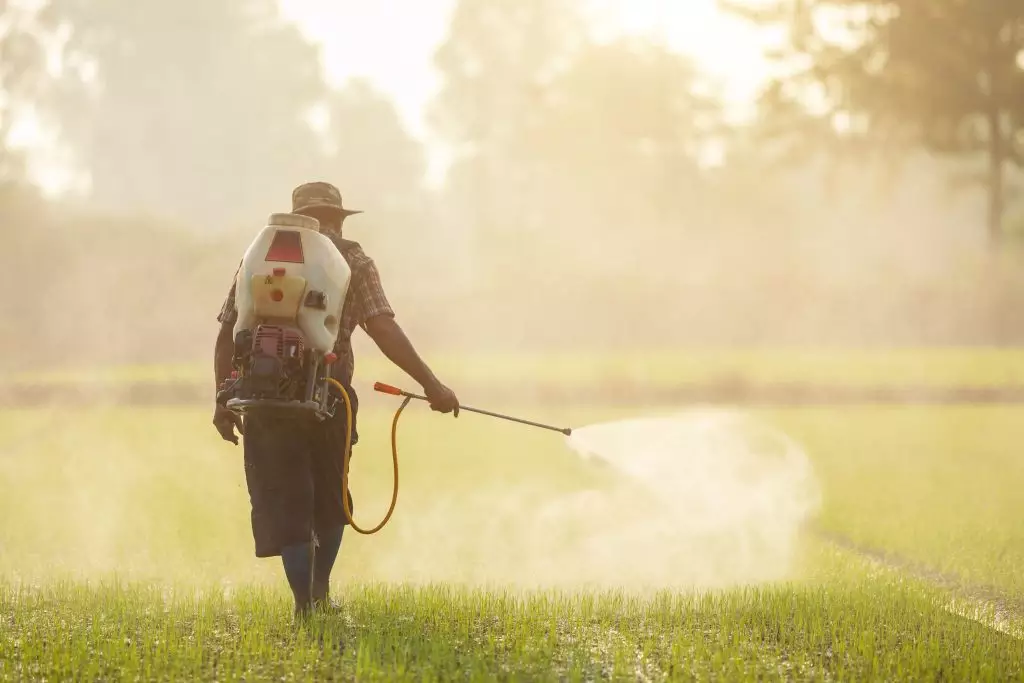 The continuous usage of highly synthetic agrochemicals with their adverse health implications farmers has reponed heat debate among stakeholders as they canvassed minimal application of these chemicals.
The continuous usage of highly synthetic agrochemicals with their adverse health implications farmers has reponed heat debate among stakeholders as they canvassed minimal application of these chemicals.
Lately, experts have linked the prevalence of cancer, kidney failure, reproductive organ malfunctioning and other life-threatening diseases among Nigerians, especially youths, to misuse of these chemicals.
At a recent stakeholders’ consultative meeting on 2025 agriculture budget, held in Abakalaki, Ebonyi State, the stakeholders called on government at all levels to begin to develop a safe, sustainable food strategy that would ensure reduction to the lowest level, the use of these chemicals in agriculture by 2050.
To achieve this, they noted that the Federal Government needs to develop a safe sustainable food strategy that reduces the use of highly toxic synthetic chemical pesticides by 50 per cent by 2030, 25 per cent by 2040 and a maximum of five per cent by 2050.
They also urged government at all levels to increase public investment in Agriculture to enable strong support to be given to farmers in their transition towards agroecology.
They noted that increased investment in agriculture will lead to increase in the agricultural GDP to at least 6 per cent and help in ending the food insecurity in the country.
An Agricultural Extensionist, at the National Agricultural Extension and Research Liaison Services (NAERLS), Prof. Fadlullah Olayiwola Issa, told The Guardian that there are several similar cases that abound across the country as a result of this menace, noting that while many were under-reported; others were not diagnosed to detect the ‘exploit’ of this menace, just as it continues to kill Nigerians silently.
Prof. Olayiwola, said all categories of Nigerians are at risk of the menace, due to the fact that they all consume produce from the farms. “You know chemical would not kill you at once, all of us consume chemicals, if you eat vegetables you are eating chemical, even green vegetables, the reason is this, there are rules to chemical use, if you spray some chemical today, the rule says for the next seven days you must not harvest it, and it must not be consumed.
“But many farmers are pressed if you get there they would not tell you they sprayed it yesterday, so you have consumed part of the chemical, it will not kill you one day.
“When you see different health cases in the hospitals today, you may not know the causes. The man might say he doesn’t consume anything synthetic, he only eats farm produce that are raw, yet still dying of cancer or kidney-related ailment. All of us consume it because farmers don’t follow the guidelines for spraying of chemicals.”
Beyond direct consumption of the chemicals through farm produce; The Guardian learnt that humans could also consume the chemicals through the consumption of meat. It was learnt that when agrochemicals are sprayed on produce, like animals, humans must not consume them, as they’ll need required days to be ready for consumption.
Prof. Olayiwola noted that aside direct consumption of the chemicals, some farmers indirectly ingest the chemicals because they smoke and eat while spraying. “Some also spray against the wind, this is a basic rule; you must understand where the wind flows and spray accordingly so that you don’t touch it. Some of them use the agrochemical containers for domestic purpose, which is wrong; it is supposed to be damaged after use.”
A Crop Protectionist, from the Institute for Agriculture Research (IAR), Ahmadu Bello University (ABU), Zaria, Kaduna State, Prof. Rabiu Adamu, who confirmed that pesticides are often toxic to humans, said nine highly-persistent pesticides – aldrin, chlordane, DDT, dieldrin, endrin, heptachlor, mirex, toxaphene, and hexachlorobenzene were officially proscribed for use in agriculture.
He regretted that several of these are still openly sold in Nigeria, while some are smuggled in or even donated by some “caring” donor countries. “Sometimes, the pesticides were donated while their use was still permitted, but a combination of excessive donation and poor logistics or timing results in delays in receiving the pesticides at the point of need, and they become “obsolete” while in stock, despite this, people still go ahead to use them.”
Prof. Adamu reiterated that, “Depending on the type and class, pesticides can contribute to neurological, respiratory, immunologic, and reproductive health problems, as well as cancer, immune system damage, and increased risk of sickness in the short term.
“These unintended consequences may be most true of pesticides – like insecticides, fungicides, and herbicides – many of which are known to be toxic to humans, particularly when over-applied or used without appropriate protective equipment.”
He disclosed that there is abundant evidence of poor pesticide education leading to extensive misuse in Nigeria, noting that cases of over-dosage, for one reason or the other, have been reported as common. “Even among government-trained, or agency-trained and assisted small-scale farmers, far more quantity of pesticides than prescribed is applied with the general expectation that it would affect more rapid killing of crop pests.






